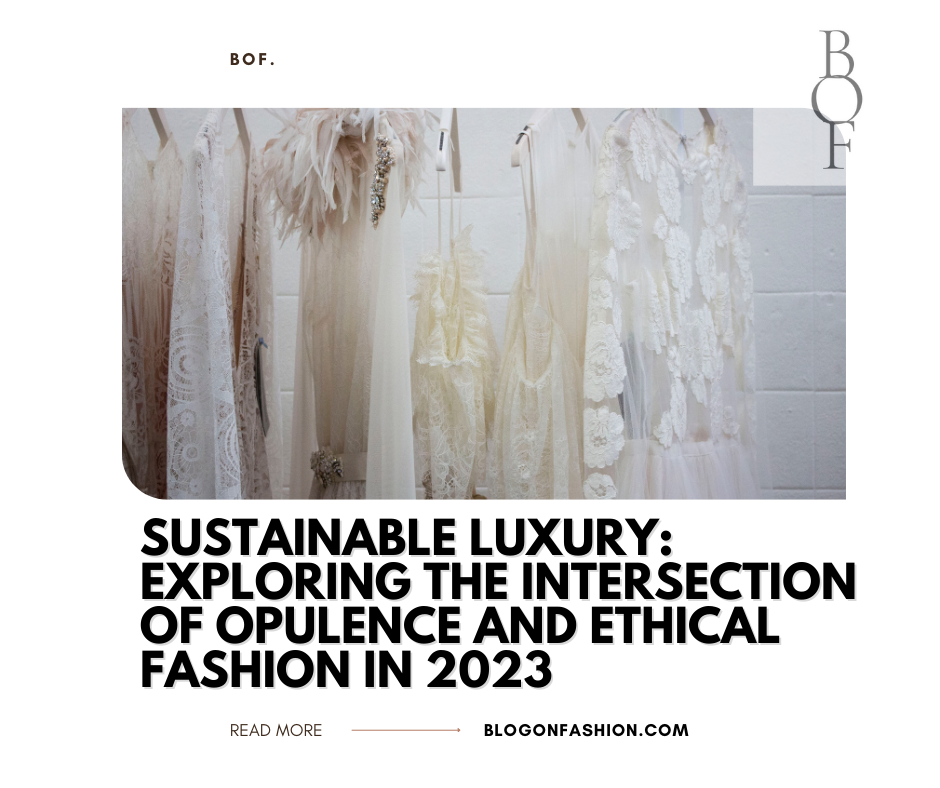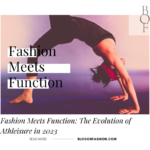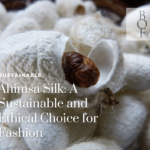
In 2023, a new era of fashion is emerging—one that combines opulence and luxury with a strong commitment to ethical and sustainable practices. The concept of sustainable luxury is gaining momentum as designers and consumers recognize the importance of preserving the planet while indulging in exquisite craftsmanship and high-end fashion. This intersection of opulence and ethical fashion is redefining what it means to be truly luxurious in today’s world.
Traditionally, luxury fashion has been associated with exclusivity, rare materials, and impeccable craftsmanship. However, as sustainability becomes a global concern, fashion houses are reevaluating their practices to align with ethical and environmental values. The focus is shifting towards responsible sourcing of materials, reducing waste, and promoting fair labor practices throughout the supply chain.
One aspect of sustainable luxury is the use of eco-friendly materials. Designers are incorporating organic and natural fabrics, such as organic cotton, hemp, and linen, into their collections. These materials have a lower environmental impact compared to conventional fabrics and often involve less chemical processing. Additionally, innovative alternatives to animal-derived materials, like faux fur and vegan leather, are gaining popularity, offering cruelty-free options without compromising on luxury.
Sustainable luxury also encompasses a commitment to transparency and traceability. Fashion brands are increasingly providing detailed information about their supply chains, ensuring that materials are sourced responsibly and production processes meet high ethical standards. This transparency allows consumers to make informed choices and support brands that prioritize sustainability and social responsibility.
Another aspect of sustainable luxury is the concept of longevity and timeless design. In contrast to fast fashion’s disposable nature, luxury brands are emphasizing the creation of high-quality pieces that are designed to last. This shift encourages consumers to invest in timeless and versatile garments that can be worn for years, reducing the demand for constant consumption and minimizing waste.
The concept of circularity is also gaining traction in the realm of sustainable luxury. Brands are exploring innovative ways to extend the lifespan of their products through repair, upcycling, and recycling initiatives. By offering repair services and encouraging customers to return and recycle their garments, brands are fostering a circular economy, where materials are kept in use for as long as possible.
Furthermore, sustainable luxury goes beyond the product itself and encompasses the entire brand experience. Luxury fashion houses are incorporating sustainable practices into their operations, from energy-efficient manufacturing processes to eco-conscious packaging. They are also engaging in philanthropic initiatives and partnering with environmental organizations to drive positive change within the industry and beyond.
Consumer demand for sustainable luxury is on the rise, as individuals become more conscious of the environmental and social impact of their purchasing decisions. Discerning consumers are seeking out brands that align with their values, appreciating the craftsmanship, attention to detail, and ethical practices that define sustainable luxury.
In conclusion, sustainable luxury represents a shift in the fashion industry, blending opulence with a strong commitment to ethical and sustainable practices. It demonstrates that luxury and sustainability can coexist, creating a new standard for what it means to indulge in high-end fashion. By embracing responsible sourcing, transparency, durability, circularity, and a holistic approach to sustainability, fashion brands are setting the stage for a more conscious and luxurious future. In 2023 and beyond, sustainable luxury offers a compelling vision where style, elegance, and ethical values intertwine to create a truly opulent fashion experience.


